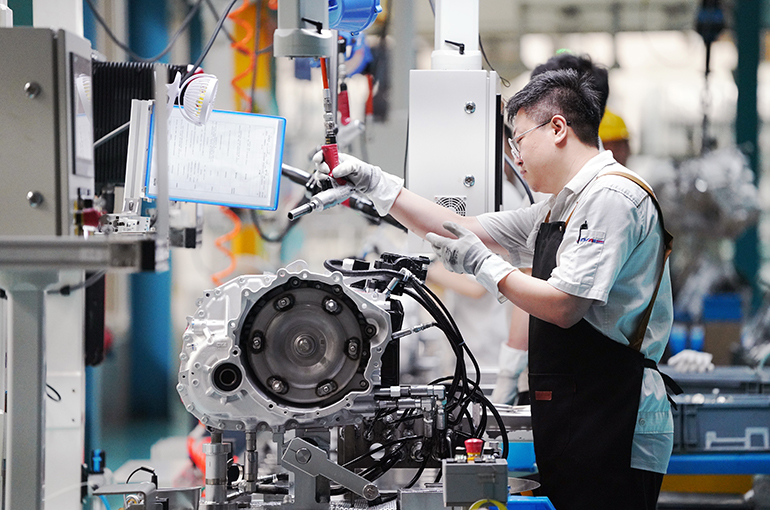 China’s Consumer Prices Drop in August for Fifth Time This Year; Producer Price Decline Narrows
China’s Consumer Prices Drop in August for Fifth Time This Year; Producer Price Decline Narrows(Yicai) Sept. 10 -- Consumer prices in China fell last month for the fifth time this year, while the 35-month decline in producer prices eased to the slowest pace in five months, as the government takes steps to expand domestic demand and curb sectoral price wars.
The consumer price index inched down 0.4 percent in August from a year earlier, according to data released by the National Bureau of Statistics today. That was steeper than the average 0.2 percent decline expected by 15 chief economists polled by Yicai. The CPI was flat in July and rose 0.1 percent in June.
Consumer prices fell mainly because of a high base number a year ago and food prices remaining below seasonal levels, NBS Chief Statistician Dong Lijuan said. The tailwind from last year reduced the CPI by around 0.9 percentage point, 0.4 point more than in the prior month. The CPI was flat month on month and about 0.3 point below seasonal norms, he added.
The bureau said that while external uncertainties, commodity price swings, and fierce sectoral competition persist, proactive economic policies, targeted measures to boost consumption, curbs on disorderly price-cutting, better regulation of key industries, and the emergence of new growth drivers are together laying a firmer foundation for a gradual and sustainable rebound in prices.
The core CPI, which excludes food and energy prices, rose to an 18-month high of 0.9 percent in August from the same period of last year, mainly thanks to policies to boost consumption and curb involution-style competition, according to the NBS.
Involution, or ‘neijuan’ as it is called in Chinese, is a self-defeating cycle of ever-intensifying competition that saps both corporate earnings and technological progress.
The core CPI and non-food CPI should continue rising, supported by the low base effect, anti-involution policies lifting industrial product prices, and demand-stimulus measures, said Wu Chaoming, chief economist at Chasing Financial Holdings. This should help to keep the CPI steady, Wu said, adding that he expects it to increase on a monthly basis from this month through December.
The producer price index fell 2.9 percent last month from a year earlier, the NBS data also showed, exactly as the surveyed chief economists had predicted. The pace eased from a 3.6 percent drop in July and was the narrowest decrease since April.
On a monthly basis, the PPI inched down 0.2 percent, unchanged on the previous month.
Improved supply-demand helped lift prices in some energy and raw materials industries from contraction to flat or rising, while domestic petroleum and some nonferrous metals prices cooled, the NBS’s Dong noted.
Editor: Futura Costaglione